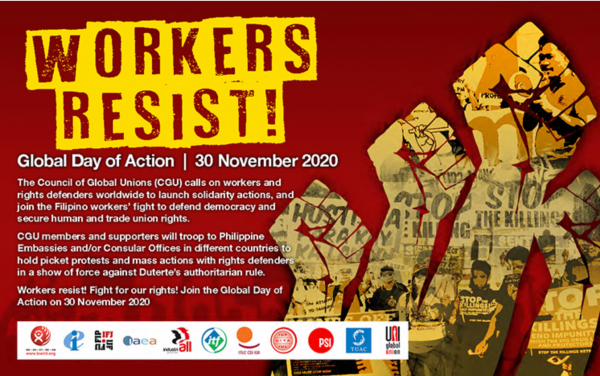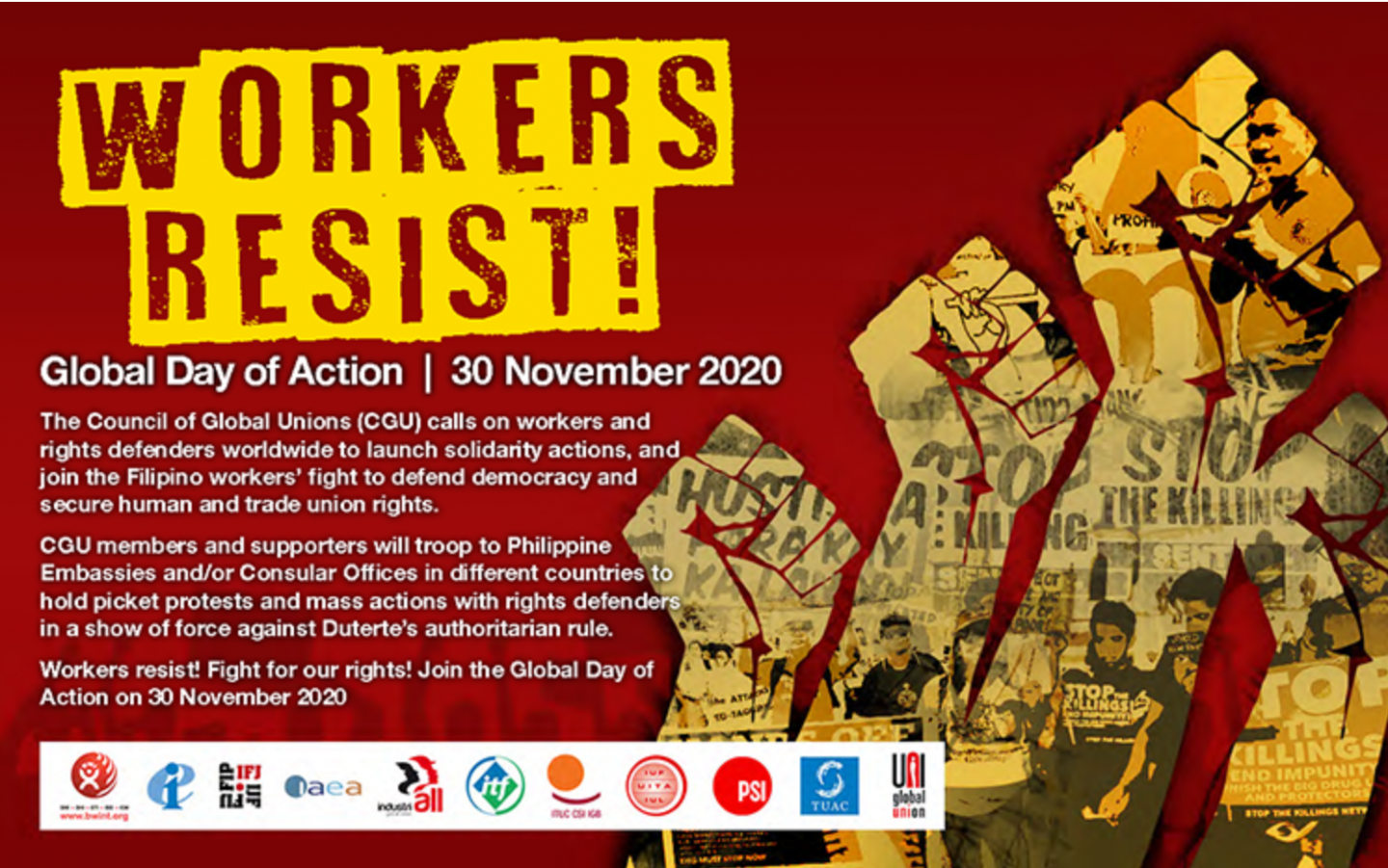28 November, 2020Council of Global Unions statement on the day of action on the Philippines
In the darkest time since the end of the dictatorship of President Marcos in 1986, the trade union movement in the Philippines has come together to fight to save democracy. The Council of Global Unions (CGU) has joined and supports their struggle. Today, 30 November marks the most recent global union mobilisation. The action day shines a light on advancing despotism and calls on the Government of the Philippines to honour its international human rights commitments.

During the rule of President Duterte, there have been unrelenting attacks on trade unions, independent media and journalists, opposition politicians and human rights activists. Government authorities have orchestrated harassment, which often targets women and representatives of Indigenous peoples and disadvantaged groups, “red-tagging” and disinformation on social media.
According to a June report of the UN Commission on Human Rights, “Facebook has removed at least 200 instances of coordinated inauthentic behaviour found in Facebook and Instagram pages, groups, and accounts, which it found were linked to a network organized by the social media manager of the President’s electoral campaign.” According to that same report, “harmful rhetoric from the highest levels of the Government has been pervasive and deeply damaging. Some statements have risen to the level of incitement to violence.”
Detentions, arrests, trials based on fake evidence, and red tagging have accelerated. The body count of trade unionists, journalists, and human rights defenders continues to grow. With rare exceptions, these abuses take place with impunity. Dramatic examples of the clamp-down on the free press are the conviction of media CEO Maria Ressa for “cyber-libel” and the shutdown of ABS-CBN broadcasting. The manipulation of social media, however, obscure these human rights violations for much of the population.
Red-tagging is increasing. The practice of labelling individuals or groups as communists or terrorists, has resulted in threats and violence. In some cases, it has been, in effect, a death sentence.
Already weak legal protections of human rights, including freedom of expression and association, suffered another blow with the adoption of the Anti-Terrorist Act in July. It broadened and made more arbitrary the existing legislation. It expands the definition of terrorism to chill dissent and opposition and allows detention without a warrant from three to fourteen days, renewable for another ten days. It is another instrument to terrorise those who dare to speak up and organise by accusing them of being terrorists.
The CGU, once again, calls on the Government of the Philippines to end its violations of human rights and re-join the family of democratic nations. However, our calls as well as the repeated decisions of the International Labour Organisation and the UN Council on Human Rights have been ignored or have yielded, at best, empty promises.
The European Parliament adopted a “resolution on the situation in the Philippines, including the case of Maria Ressa”. It details human rights violations and calls on the European Commission to review GSP+, which provides privileged access to the European market. There are GSP systems elsewhere, including in the US, an important trading partner of the Philippines.
Governments, individually and collectively, should make it clear that they will not condone Philippine government atrocities for favourable economic agreements, while corporations and economic employers should respect universal human rights standards in the country, including in their supply chains, and not take advantage of weaknesses in business processes and regulations.
Democracy is in critical condition in the Philippines, but not yet dead. That is because so many brave Filipinos are fighting for it. The people of the Philippines require and deserve global support and they need it urgently. This is a moment for governments supporting universal human rights to step forward and show that their commitments are not just words.
